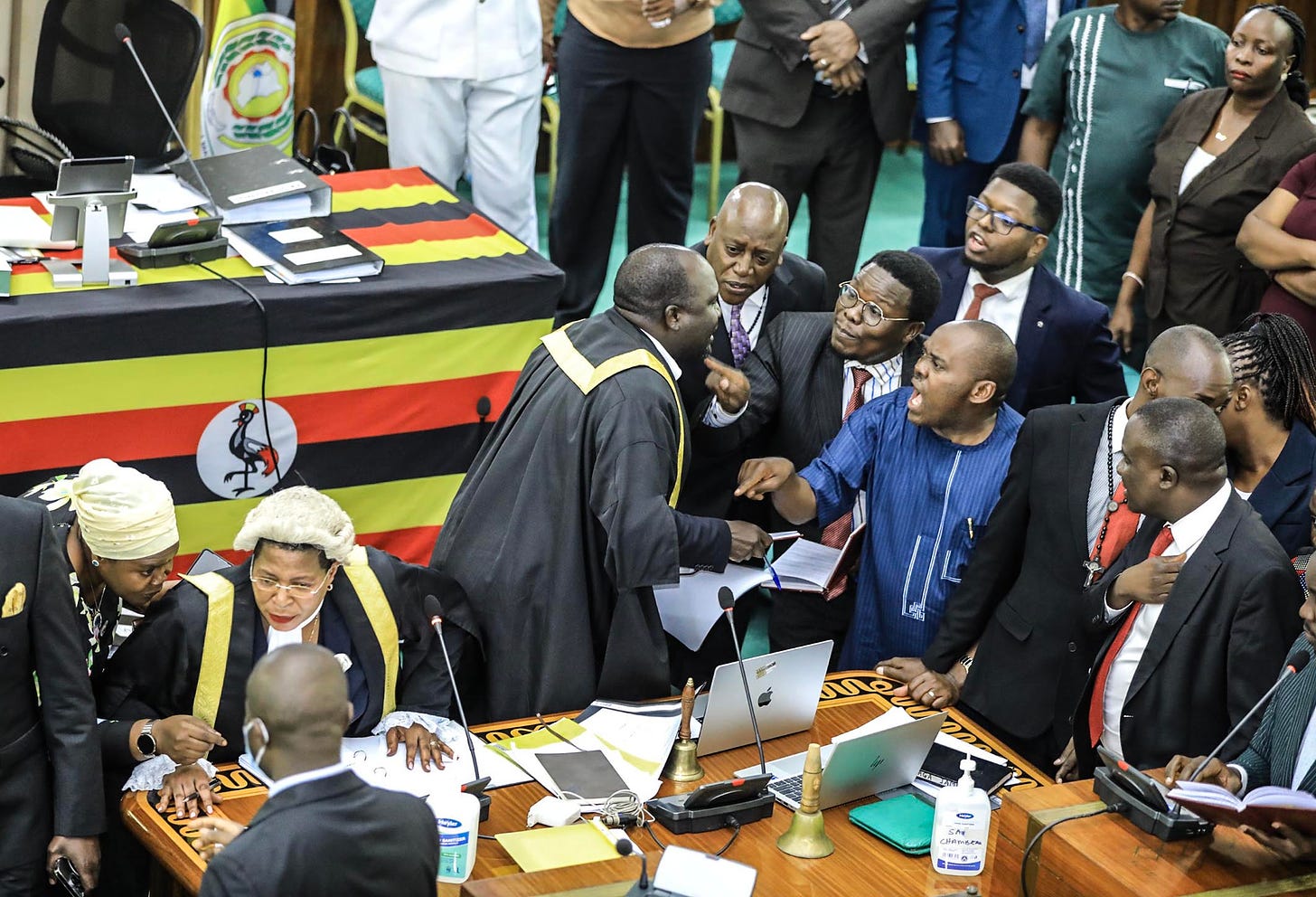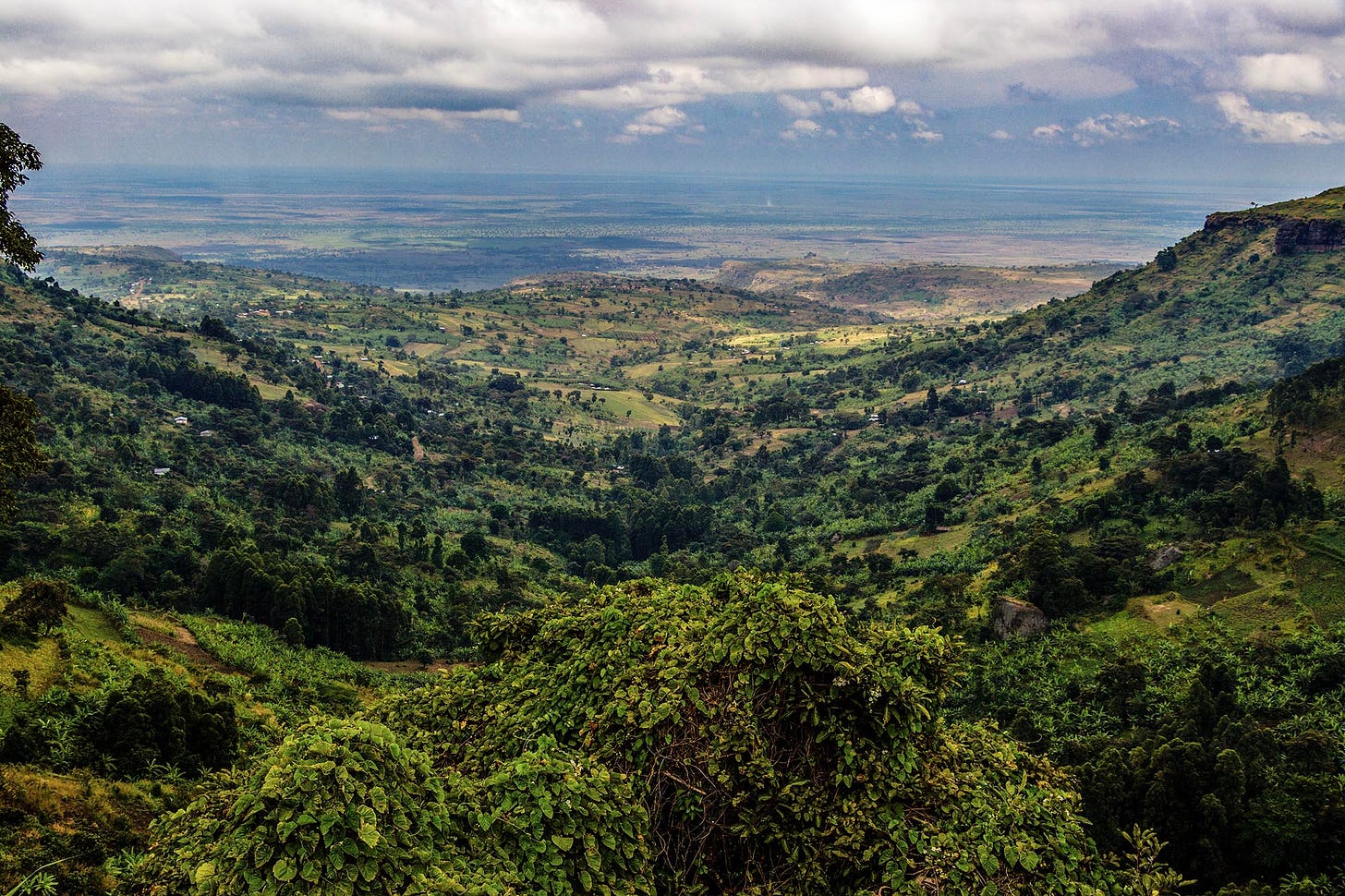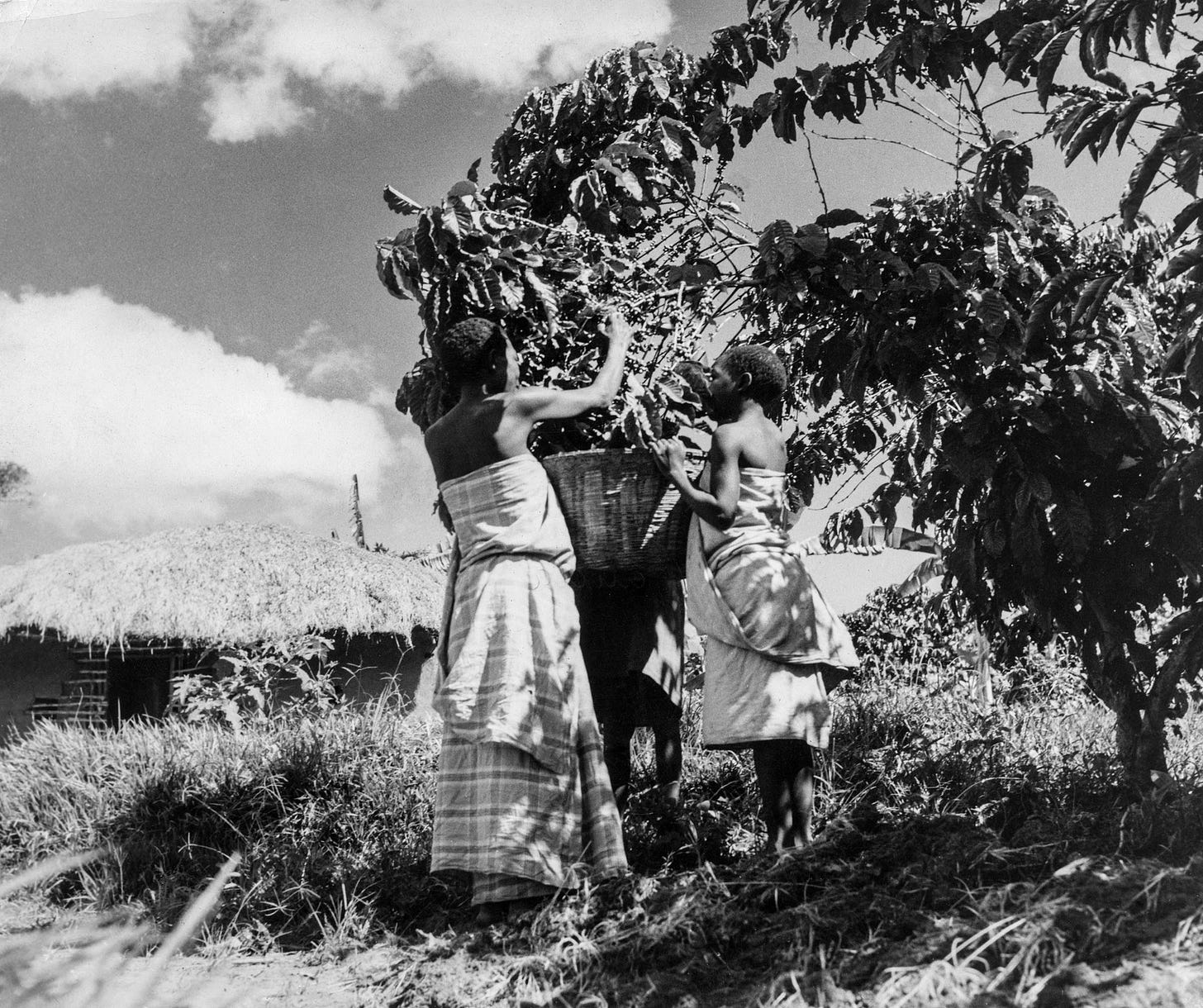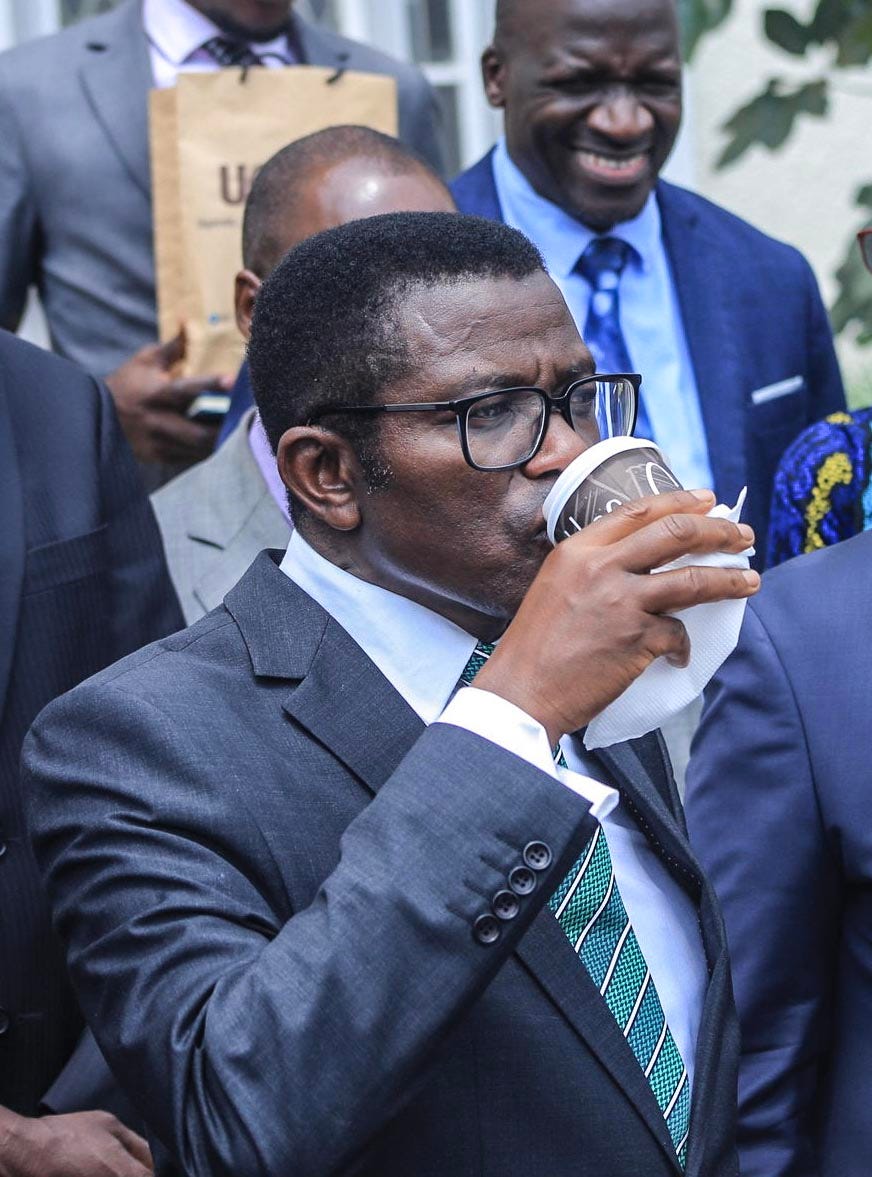Coup de Latte: Inside Uganda’s coffee wars
The link between coffee and anxiety is well established. This time, however, it’s not the caffeine that is making Ugandan farmers nervous
Kalungi Kabuye in Kampala
The link between coffee and anxiety is well established. This time, however, it’s not the caffeine that is making Ugandan farmers nervous, but the government’s plans to take control of the country’s biggest cash crop.
Earlier this month, on the day parliamentarians were due to debate one of the most sensitive issues in Ugandan politics, there was a heavy security presence around the Parliament building in Kampala.
“From the word go, as we arrived at Parliament, the situation was different,” opposition leader Joel Ssenyonyi told the Daily Monitor. He complained that the lights in the building had been switched off, as was the internet; and that a bunch of vest-wearing “hooligans” were shoving MPs around.
When the debate finally started, tensions rose higher yet. Two parliamentarians engaged in a physical fight over seating arrangements; one of them, Francis Zaake, ended up in hospital. He had earlier complained to the speaker of the house that an unidentified man with a gun was wandering around the chamber.
Despite this intimidating atmosphere – or perhaps because of it – it took just one round of voting to pass the National Coffee Amendment Bill 2024.
The new legislation still needs to be signed into law by President Yoweri Museveni, whose National Resistance Movement (NRM) dominates the assembly. When he does so, it will give his government control over the local coffee industry – just as coffee hits its highest price since 1977 on global markets.
But the president, like his predecessors, might not have it all his own way. Trouble is brewing. Coffee is not just the country’s most lucrative cash crop, it is also the most political.
The coffee wars
For centuries, farmers in the central, lakeside Buganda region have been growing coffee. The British colonial government turned it into a cash crop, giving Buganda households an enormous income advantage over the rest of the population. In fact, Britain built its colonial project around the Buganda Kingdom; they were the favoured partners in the local iteration of the Empire’s ‘divide and rule’ strategy.
These economic and political advantages have given the region a privileged position in modern Uganda. Its people, the Baganda, take their exceptionalism in the Uganda arrangement pretty seriously. And, thanks to their continued domination of coffee exports – the top forex earner for most of Uganda’s history, overtaken only recently by gold – they have the economic muscle to make their feelings heard.
The Buganda region, which includes the country’s capital Kampala, is home to 10% of the population but contributes nearly half of Uganda’s GDP. All Ugandan rulers must therefore answer the so-called “Buganda Question”; either negotiating for the consent of the Baganda, or breaking their power to resist.
Milton Obote, the first post-independence prime minister, chose the latter option. In 1963 he defied demands to increase the price paid to coffee farmers in Buganda; and, as hostilities increased in the mid-1960s, dispatched an army battalion to attack the palace of the Kabaka of Buganda, driving the king into exile. That battalion was led by a young army officer called Idi Amin Dada.

For Obote, this was a very temporary victory. In 1971, Amin led a coup d’etat – with support from Buganda – that forced Obote into exile.
Later, Amin would launch his own “coffee war”. An unseasonal frost in the 1970s wiped out much of Brazil’s coffee harvest. Prices skyrocketed. Amin’s government was too preoccupied with its own survival to take advantage. As public institutions like the Coffee Marketing Board collapsed, individual farmers and traders smuggled coffee out of Uganda and sold it at much higher prices.
Amin declared coffee smuggling a treasonous offence, punishable by death by firing squad. Some coffee smugglers were executed, but the smuggling continued; those who did not get caught became millionaires.
Museveni stirs up a storm
President Yoweri Museveni’s coffee policy since taking office in 1986, has been as delicate as his more overtly political answers to the “Buganda Question”.
His first big move was to get rid of the state’s monopoly on coffee exports, replacing it with the Uganda Coffee Development Authority (UCDA) – a semi-autonomous body that, in exchange for 1% of export income, certified coffee quality for private exporters, supported research and provided resources to some farmers, such as seedlings.
This proved to be a great deal for coffee farmers, and for the Ugandan economy.
Ezra Suruma, a former deputy governor of the central bank, described it as one of the “most daring and far-reaching economic measures taken by the NRM government” in his memoir. Until now, Museveni appeared to agree.
The new coffee bill – passed during those chaotic parliamentary proceedings – will absorb the coffee authority into the Ministry of Agriculture, giving direct control to the state. The timing is interesting: after another crop failure in Brazil, coffee reached a record high this week on global markets.
Museveni claims that he is merely trying to rationalise the business of government, and that the move is part of a broader push to reduce the number of ministries and departments, and eliminate corruption. He described the UCDA as a “parasitic agency” and a “disgrace to the nation”.
But critics suggest a more sinister motivation. “These manoeuvres point to unclear motives, more so when the stakeholders’ views are not respected,” Charles Peter Mayiga, the prime minister of Buganda, told The Continent. (Another element to the contemporary settlement of the “Buganda Question” is that the kingdom gets to run a parallel but subordinate government, led by its traditional monarch. Mayiga is the current civil head of that government).
Mayiga suggested that Baganda farmers, who still grow up to a third of Uganda’s coffee, will find other ways to stay ahead of the politicians. “We shall miss UCDA and its economies of scale, of course, but we have to work with what we have,” he said.
Those same farmers, along with the other major coffee-growing communities in the country’s south-central regions, may also make their feelings known next year, when Museveni faces yet another electoral test. Will voters look past Museveni’s attempts to take control of the coffee industry? Or will they decide that he is not their cup of tea?







I did some research on Uganda's coffee value chain about 15 years ago. Do they still sell mostly to the Swiss and the Austrians? Also, how much arabica are they growing now. It used to be all robusta, but I know there was a serious effort to add arabica.